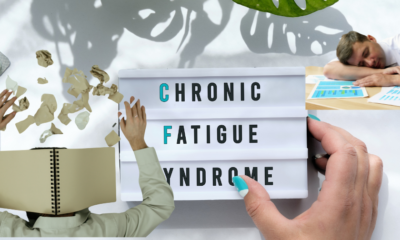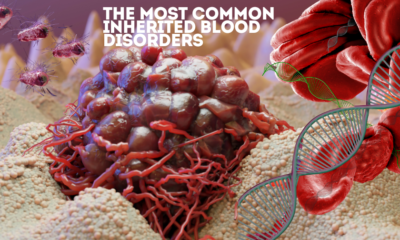Mental Health
Alzheimer’s Disease and Dementia: Recognizing Early Signs and Seeking Help

Alzheimer’s disease and dementia represent significant public health challenges worldwide, affecting millions of individuals and their families. Early detection of these conditions is crucial as it allows for better management, treatment options, and planning for the future. This report delves into the early signs of Alzheimer’s and dementia, explores why early recognition is essential, and provides guidelines on seeking help.
Understanding Alzheimer’s Disease and Dementia
Alzheimer’s disease is a progressive neurological disorder that causes brain cells to degenerate and die. It is the most common cause of dementia, a general term for a decline in cognitive function severe enough to interfere with daily life. Dementia encompasses a range of symptoms, including memory loss, impaired reasoning, and changes in behavior, that are severe enough to reduce a person’s ability to perform everyday activities.
According to the Alzheimer’s Association, more than 6 million Americans are currently living with Alzheimer’s disease, and this number is projected to rise to nearly 13 million by 2050 due to the aging population. Alzheimer’s is not a normal part of aging, and it involves a complex interplay of genetic, environmental, and lifestyle factors.
Recognizing Early Signs of Alzheimer’s and Dementia
Recognizing the early signs of Alzheimer’s and dementia is vital for timely intervention. Some of the most common early signs include:
1) Memory Loss Affecting Daily Life: This is often one of the first signs of cognitive impairment. Individuals may forget recently learned information, important dates, or events and increasingly rely on memory aids like notes or electronic devices.
2) Difficulty in Planning or Solving Problems: Individuals may experience difficulty following familiar recipes or keeping track of monthly bills. This could be an early indicator that cognitive function is declining.
3) Challenges in Completing Familiar Tasks: Trouble completing routine tasks at home, at work, or during leisure activities, such as driving to a familiar location or remembering the rules of a favorite game, can also be a warning sign.
4) Confusion with Time or Place: People with Alzheimer’s can lose track of dates, seasons, and the passage of time. They may have trouble understanding something if it is not happening immediately.
5) Changes in Mood and Personality: Unexplained mood swings, depression, confusion, and distrust of others may also signal early dementia.
Other signs to watch for include difficulty understanding visual images and spatial relationships, problems with speaking or writing, misplacing things and losing the ability to retrace steps, and withdrawal from work or social activities.
Importance of Early Detection and Diagnosis
Early detection and diagnosis of Alzheimer’s and dementia are crucial for several reasons:
1) Access to Treatment and Support: An early diagnosis allows individuals to benefit from available treatments that can help manage symptoms, slow disease progression, and maintain quality of life for a more extended period.
2) Better Planning for the Future: Knowing the diagnosis allows individuals and their families to make informed decisions about legal, financial, and caregiving arrangements. It also allows them to participate in clinical trials and research studies to find new treatments.
3) Reducing Emotional and Financial Impact: Early diagnosis helps reduce the stress and uncertainty that comes with unexplained symptoms. Families can receive appropriate counseling and support, which is vital for managing the emotional and financial challenges associated with caregiving.
How to Seek Help
If you suspect that you or a loved one may be experiencing the early signs of Alzheimer’s or dementia, it is essential to seek professional help. Here are some steps to consider:
1) Consult a Healthcare Provider: Start by discussing your concerns with a primary care physician. They can perform initial assessments, review medical history, and refer you to specialists such as neurologists or geriatricians for further evaluation.
2) Visit a Memory Clinic: Memory clinics offer comprehensive assessments by a team of specialists who can provide a more accurate diagnosis and treatment plan. These centers may also offer access to clinical trials and research studies.
3) Consider Cognitive and Physical Assessments: Diagnosing Alzheimer’s typically involves cognitive and neurological tests, brain imaging (such as MRI or CT scans), and sometimes, genetic testing. It is important to follow a thorough diagnostic process to rule out other conditions that may mimic dementia.
4) Explore Treatment Options: While there is no cure for Alzheimer’s, several medications have been approved by the U.S. Food and Drug Administration (FDA) to manage symptoms. The newest drugs, such as Aducanumab (Aduhelm™) and Lecanemab (Leqembi™), are designed to target amyloid plaques in the brain, potentially slowing cognitive decline in the early stages of Alzheimer’s disease.
5) Seek Support Services: Organizations like the Alzheimer’s Association offer resources and support groups for patients and caregivers. These groups can provide valuable information, emotional support, and practical advice for managing day-to-day challenges.
Preventive Measures and Risk Reduction
While some risk factors for Alzheimer’s, such as age and genetics, cannot be modified, others can be managed through lifestyle changes. Here are some evidence-based strategies to help reduce the risk of cognitive decline:
- Maintain a Healthy Diet: Diets rich in fruits, vegetables, lean proteins, and whole grains have been associated with a lower risk of cognitive decline. The Mediterranean and DASH diets are particularly recommended.
- Stay Physically Active: Regular exercise has been shown to improve cognitive function and delay the onset of dementia. Activities like walking, swimming, and strength training can be beneficial.
- Engage in Mental Stimulation: Activities that challenge the brain, such as puzzles, learning a new language, or playing a musical instrument, can help keep cognitive skills sharp.
- Manage Chronic Conditions: Conditions such as hypertension, diabetes, and high cholesterol can increase the risk of dementia. Managing these conditions through medication and lifestyle changes can reduce risk.
Conclusion
Alzheimer’s disease and dementia are complex conditions that require early recognition and intervention. Understanding the early signs and symptoms can help individuals and families take proactive steps to manage these diseases effectively. Early diagnosis improves quality of life and opens doors to new treatment options and support systems. For those experiencing symptoms or concerned about cognitive decline, consulting with healthcare professionals and exploring specialized memory clinics can provide the necessary support and guidance for navigating these challenging conditions.
-

 Business5 days ago
Business5 days agoS&P 500 Soars in Best May in Decades Amid Tariff Relief and Nvidia’s Surge
-

 Immigration5 days ago
Immigration5 days agoTrump’s Immigration Crackdown: Legal Battles and Policy Shifts
-

 Healthcare7 days ago
Healthcare7 days agoAttention Economy Arms Race: Reclaim Your Focus in a World Designed to Distract You
-

 Business5 days ago
Business5 days agoUS Stock Market Soars in May Amidst Tariff Tensions and Inflation Worries
-

 Government5 days ago
Government5 days agoTrump Administration’s Government Reshaping Efforts Face Criticism and Legal Battles
-

 Business5 days ago
Business5 days agoTrump’s Tariffs: A Global Economic Reckoning
-

 Foreign Policy3 days ago
Foreign Policy3 days agoInside Schedule F: Will Trump’s Federal Workforce Shake-Up Undermine Democracy?
-

 Press Release2 days ago
Press Release2 days agoIn2space Launches Campaign to Make Space Travel Accessible for All




























